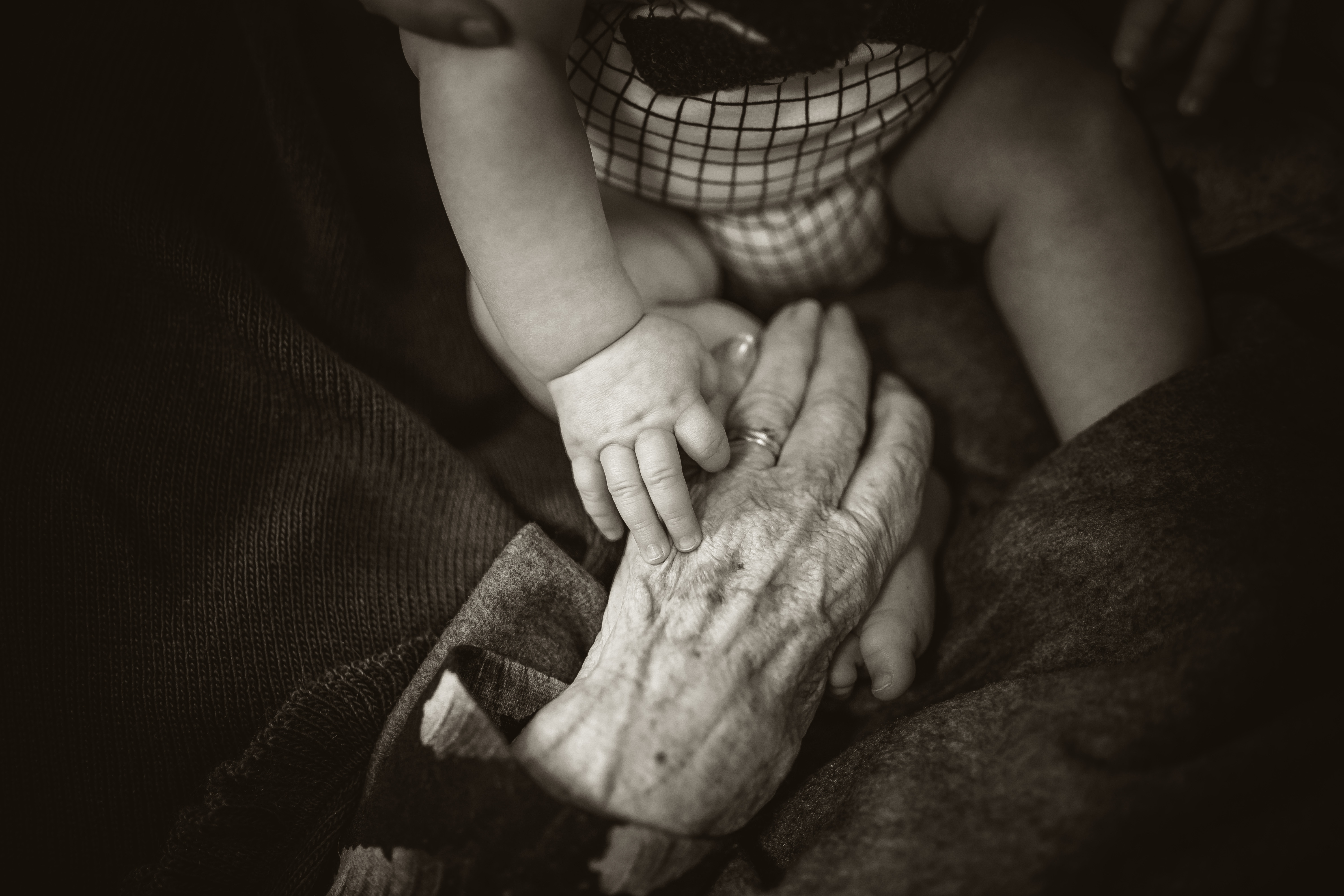Quando niente sta andando bene, chiama la Nonna. (If nothing is going well, call your grandmother.) ~ Italian proverb
In Zimbabwe, there are 12 psychiatrists serving a population of over 16 million. Treating depression–known in Zimbabwe as kufungisisa, translation: “thinking too much”–is a challenge, but psychiatrist Dixon Chibanda came up with an innovative solution. Grandmothers.
Over 400 grandmothers were trained in evidence-based talk therapy and in 2017 more than 30,000 people were helped. “Imagine if we could create a global network of grandmothers” Chibanda says, believing that the program could be used as a blueprint for any community. The evidence backs him up: in a randomized control study of grandmother therapy versus conventional depression treatment, the grandmothers had significantly lower symptoms.
But grandmothers are far more than therapists. According “the grandmother hypothesis” grandmothers played a critical role in evolution, acting as supplemental caregivers who increased the survival rate of offspring and enabled humans to live longer, more socially connected lives. My grandmother connected me to her inner circle through bingo and horse racing, carried enough peanut butter pats, candies and sugar packets in her purse to feed the two of us for a week and always had a sanitary napkin handy in case of traumatic injury.
Grandmothers are hardwired to handle emergencies and have been known to lift Buicks to free their grandchildren. A computer simulation modelling a life span similar to that of modern chimpanzees who don’t live past their child-bearing years revealed that introducing a small number of grandmothers (one percent) into the population would have a dramatic effect over time. In less than 60,000 years, the model predicted that the ape-like lifespan would double to something in a human range and grandmothers would come to represent 43 percent of the adult female population, a percentage known as the grandmothering equilibrium.
Through thousands of years of nurturing, grandmothers helped make us human. No wonder they’re incredibly resilient. The Zimbabwean grandmothers provide front-line psychological care and face crisis day after day yet they don’t burn out. They gain a sense of purpose through their work helping others that’s protective: their resilience comes from a wellspring of generosity.
So what do grandmothers in sub-Saharan Africa treating mental illness have to do with you? You can bring the grandmother cure into to your life in three ways: you can use grandmotherly wisdom as a guide, you can treat yourself with the compassion of a grandmother and you can choose to treat others with the kindness of a grandmother.
In Zimbabwe, grandmothers help those experiencing mental illness navigate their life stories and draw out what deep down they know to be true. The beauty of this approach is that you don’t need an actual grandmother. You can imagine a grandmother and have her give advice to you. It’s called self-distancing and it works. We’re notoriously bad at giving ourselves advice, but if we imagine ourselves as another person, a kindly person with our best interests at heart, we suddenly become a sage.
Another way that a grandmotherly approach can help you is in the way you treat yourself. Too many people march through life treating themselves like cruel drill sergeants, taunting themselves with cruel self-talk and making themselves perform increasingly painful feats of endurance. A grandmother is gentle and forgiving, and…
A grandmother pretends she doesn’t know who you are on Halloween. ~ Erma Bombeck
Grandmothers know that it’s more important to be kind than to be right. Treat someone like a grandmother would treat them, uplifting them with an act of kindness. You’ll get a boost and they will too.
The 5-minute recharge exercise that follows draws on the wisdom of grandmothers to tackle your life’s most vexing problem…
Your 5-Minute Grandmother Recharge
What is the most pressing issue you’re facing right now?
What would a kindly grandmother advise you to do? Take five minutes (or so, if you get on a roll) to write down whatever comes to you.
Nana’s wisdom/warning from the author’s recharge exercise: You’re going to wish you enjoyed more…
Get Fully Charged on Grandmotherly Wisdom
You can learn more about those amazing Zimbabwean grandmothers in the BBC article entitled, How a Bench and a Team of Grandmothers Can Tackle Depression.
Both The Atlantic and Scientific American have nice summaries of the evolutionary importance of grandmothers, with the latter doing a deep dive in support of the grandmother hypothesis via killer whale menopause. Bet you didn’t know killer whales experienced menopause. Imagine a cohort of grandmother killer whales.
If you’re a scientific type and want to go straight to the source, you can find the study cited in The Atlantic in support of the grandmother hypothesis–Increased Longevity Evolves From Grandmothering by Peter S. Kim, James E. Coxworth, Kristen Hawkes–here.
“There won’t be peace on earth until the wisdom of grandmothers is heard” is the rallying cry of the documentary The Wisdom of the Grandmothers.
If you’re looking for samples of the 5-minute grandmother recharge, The book Wisdom From the Grandmothers: Tips from the Realms of Love (2016) by Jean Tindle will give you plenty of inspiration. Ms Tindle sat down with pictures of her two grandmothers and, over the course of three months, journaled on a number of topics from death and the divine feminine to procrastination and business plans. “Expand. Stretch. Grow out of your perceptions” and join Jean as she taps into the wisdom of grandmothers.


